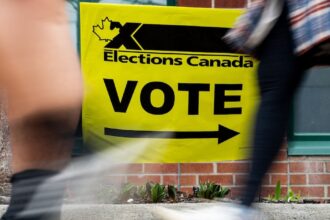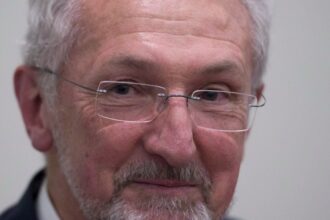In an unprecedented legal confrontation that strikes at the heart of healthcare autonomy, a coalition of Canadian physicians has launched a constitutional challenge against Alberta’s controversial transgender healthcare law. The Canadian Medical Association, alongside several provincial medical organizations, filed court documents yesterday arguing that the legislation oversteps governmental boundaries and threatens the doctor-patient relationship.
The contested Bill 26, enacted in January after heated provincial debates, requires parental consent for gender-affirming care for minors under 16, prohibits certain medical procedures for those under 18, and restricts puberty blockers and hormone therapies in schools. Premier Danielle Smith defended these measures as “protecting vulnerable children,” but medical experts across Canada have voiced alarm about political interference in established medical practices.
“This isn’t about politics—it’s about preserving evidence-based medicine,” said Dr. Kathleen Ross, president of the Canadian Medical Association. “When governments dictate treatment protocols contrary to clinical guidelines, they undermine the foundation of healthcare delivery in this country.”
The legal challenge centers on constitutional arguments that the law violates Section 7 rights to life, liberty, and security of the person. According to court filings obtained by CO24, the medical organizations contend that restricting access to gender-affirming care contradicts established medical standards endorsed by major pediatric associations worldwide.
Health Minister Adriana LaGrange responded to the challenge, stating: “Our government remains committed to ensuring parents maintain primary decision-making authority for their children’s healthcare while protecting minors from irreversible medical procedures.” This stance has found support among conservative parent groups who have rallied in Edmonton supporting the legislation.
However, transgender rights advocates point to troubling statistics since the law’s implementation. The Trans Youth Project reports a 47% increase in mental health crisis calls from Alberta teens in the first quarter after the law took effect. “We’re seeing real-world consequences of policy decisions that contradict medical consensus,” noted Dr. Samuel Weiss, pediatric specialist at the University of Calgary.
The constitutional challenge has significant implications beyond Alberta’s borders. Similar legislative efforts have emerged in Saskatchewan and New Brunswick, creating what some legal scholars describe as a patchwork of healthcare regulations across the country that could trigger federal intervention.
“This case will likely set precedent for how far provinces can go in regulating medical practices,” explained constitutional law expert Catherine McKenzie from McGill University. “The courts must balance provincial healthcare jurisdiction against professional medical autonomy and individual rights.”
The Canadian Pediatric Society has submitted evidence to the court highlighting that gender-affirming care protocols follow rigorous clinical guidelines and that delaying treatment can result in adverse mental health outcomes. Their position statement notes that such care “is delivered through thorough assessment, informed consent, and ongoing evaluation—not hasty decisions as sometimes characterized.”
Economic considerations also factor into the debate. Health economists estimate increased mental health hospitalizations could cost Alberta’s healthcare system an additional $4.2 million annually if transgender youth cannot access appropriate care, according to research from the University of Alberta’s School of Public Health.
As the legal battle unfolds in Alberta’s Court of King’s Bench, medical professionals across the country watch closely. The case raises fundamental questions about who ultimately controls healthcare decisions in Canada: elected officials or medical experts guided by scientific evidence and professional standards?
In a healthcare system already strained by post-pandemic pressures, this constitutional challenge forces Canadians to confront a profound question: When political ideology and medical science collide, which authority should prevail in determining appropriate care for our most vulnerable citizens?
























